Rated 4.5+ stars by ION Developer, LLC customers
Switching to solar power in North Carolina
Everything you need to know about making the switch to solar, from process and pricing to tax rebates and more.
1,500+
ION Developer, LLC homes
in North Carolina.
*We take privacy seriously, only showing approximate locations.
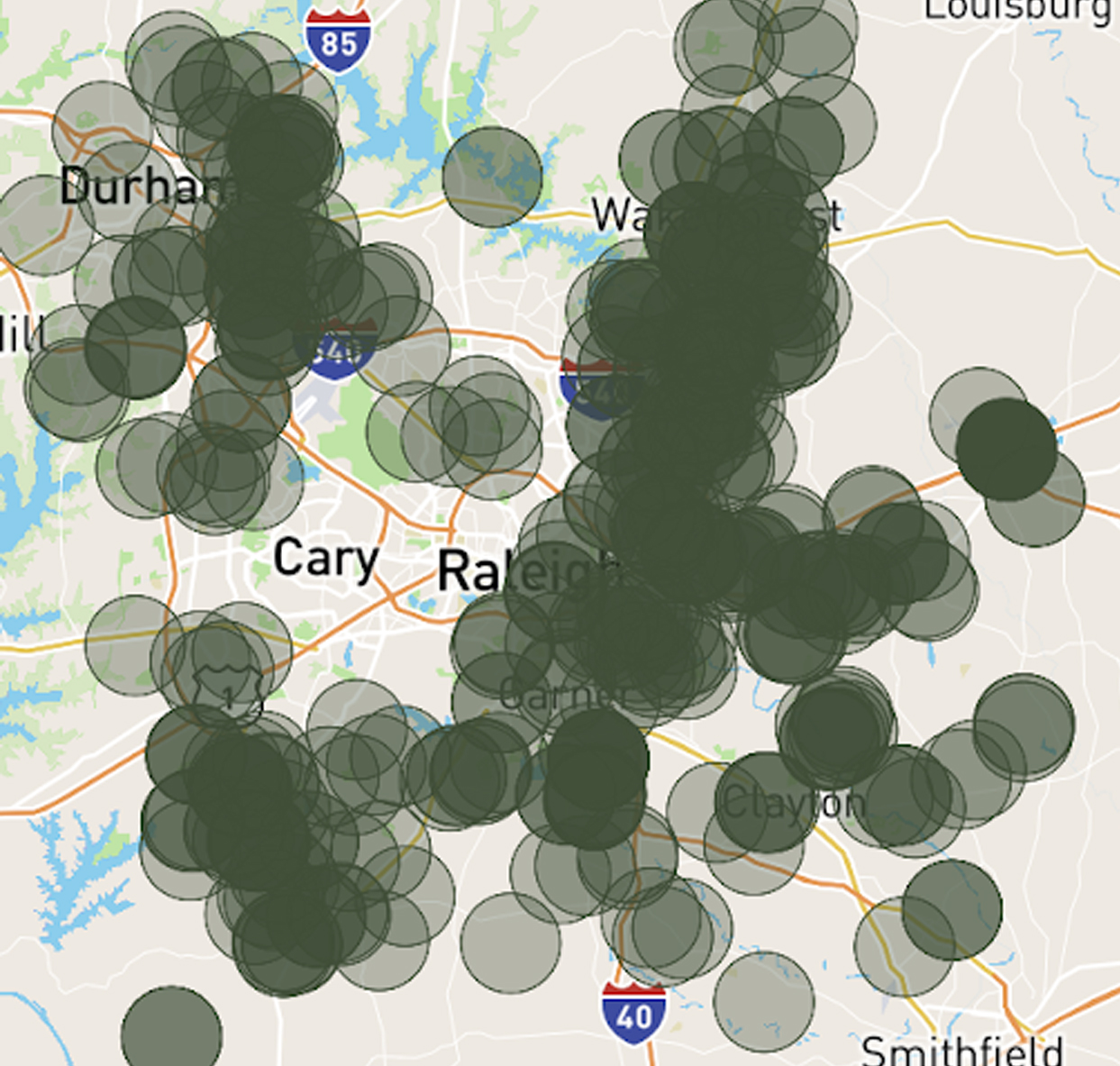
Why switch to Solar in NC?
Save money while helping the Tar Heel State go carbon-neutral
As the #3 state for solar in the nation – and with nearly a million homes being powered by solar – North Carolinians are on their way to achieving their goal of becoming carbon neutral by 2050.
Up to 30% in federal tax credits
Depending on your situation, you may qualify for the The Solar Investment Tax Credit, which can reduce the cost of your system by up to 30%.
80% exemption from property tax
While the value of your home will go up by installing a solar system, the majority of that value will be exempt from property tax increases.
Get paid when you generate excess energy
With mandated net metering, your utility company is required by law to compensate you for excess energy your system generates.
Pay the same amount every month
No more fluctuating power bills. By switching to solar, you’ll pay the same amount every month for the length of your loan.
Get free energy once your system is paid off
After paying off your loan, any power you generate is free (average US payback time is 5-15 years, which means decades of free power!).
No upfront or out-of-pocket cost to switch
ION Developer, LLC offers you some of the best financing options available in the solar industry. Our goal is to reduce your current monthly power bill while allowing you to pay off your power completely.
Trusted by North Carolinians & homeowners across the USA
4.5+ Stars
By 7,000+ ION Developer, LLC Customers.
A+ Rating
From the Better Business Bureau.
Top 5
Residential Solar Installer.
85,000+
Installs across the United States.
The installation process
Switch to solar in just
4 simple steps
Wondering what it might be like to switch to solar? Here’s a high-level look at what you can expect as an ION Developer, LLC customer.
On-site personalized home assessment
After learning more about your power needs, our team will measure, test, and assess your home before designing your custom solar system.

Custom design that fits your power needs & home aesthetic
Based on your unique needs, our in-house engineering team will build you a custom system that’s not only powerful & reliable, but looks good, too.

Permits, installation & approvals
You relax while our team handles the permits, installation, and approval process from your local government and power company.
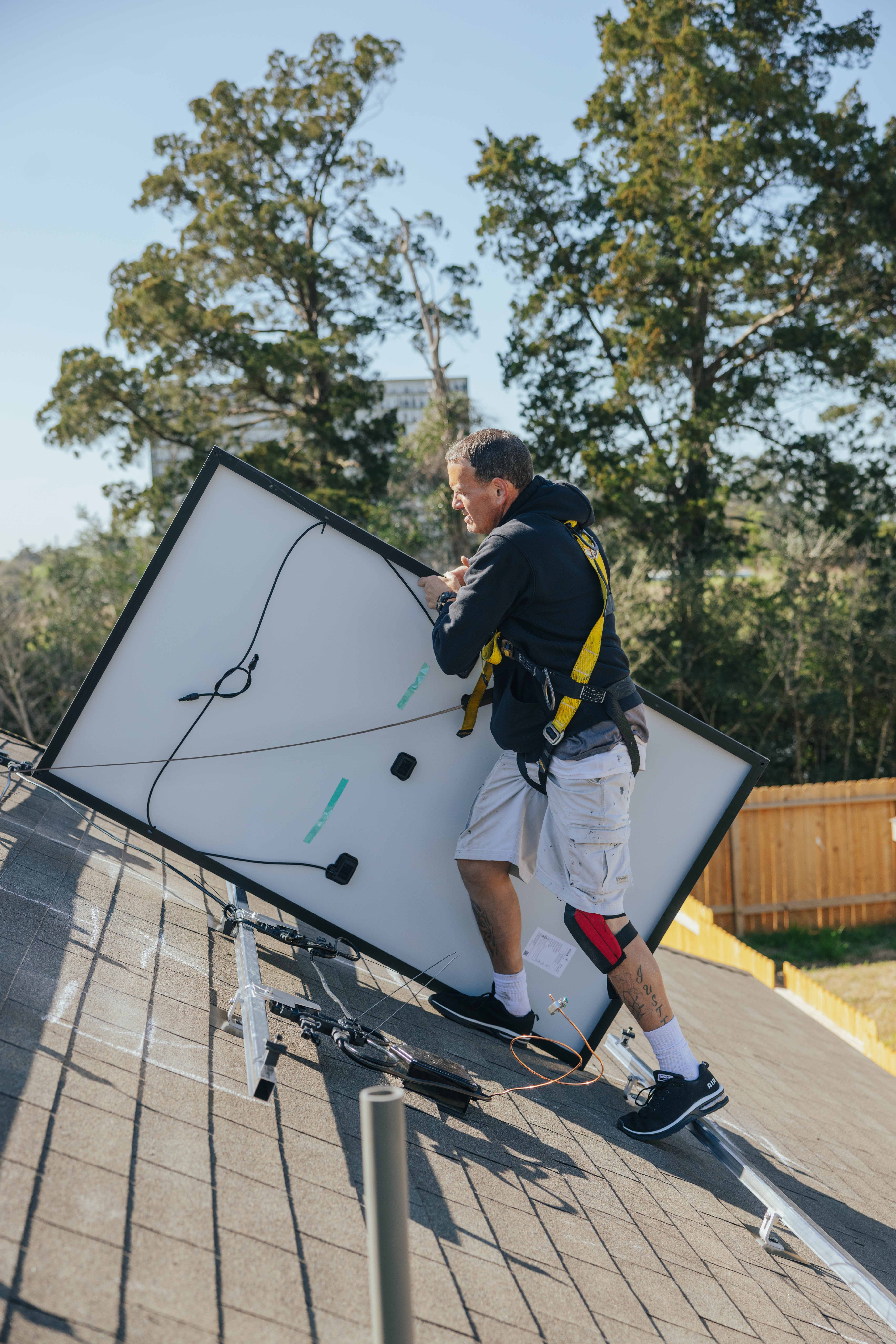
Turn on your new solar-powered home!
Soak up all the benefits of going solar, from more control over your power bill to powering your home with clean energy, and more.
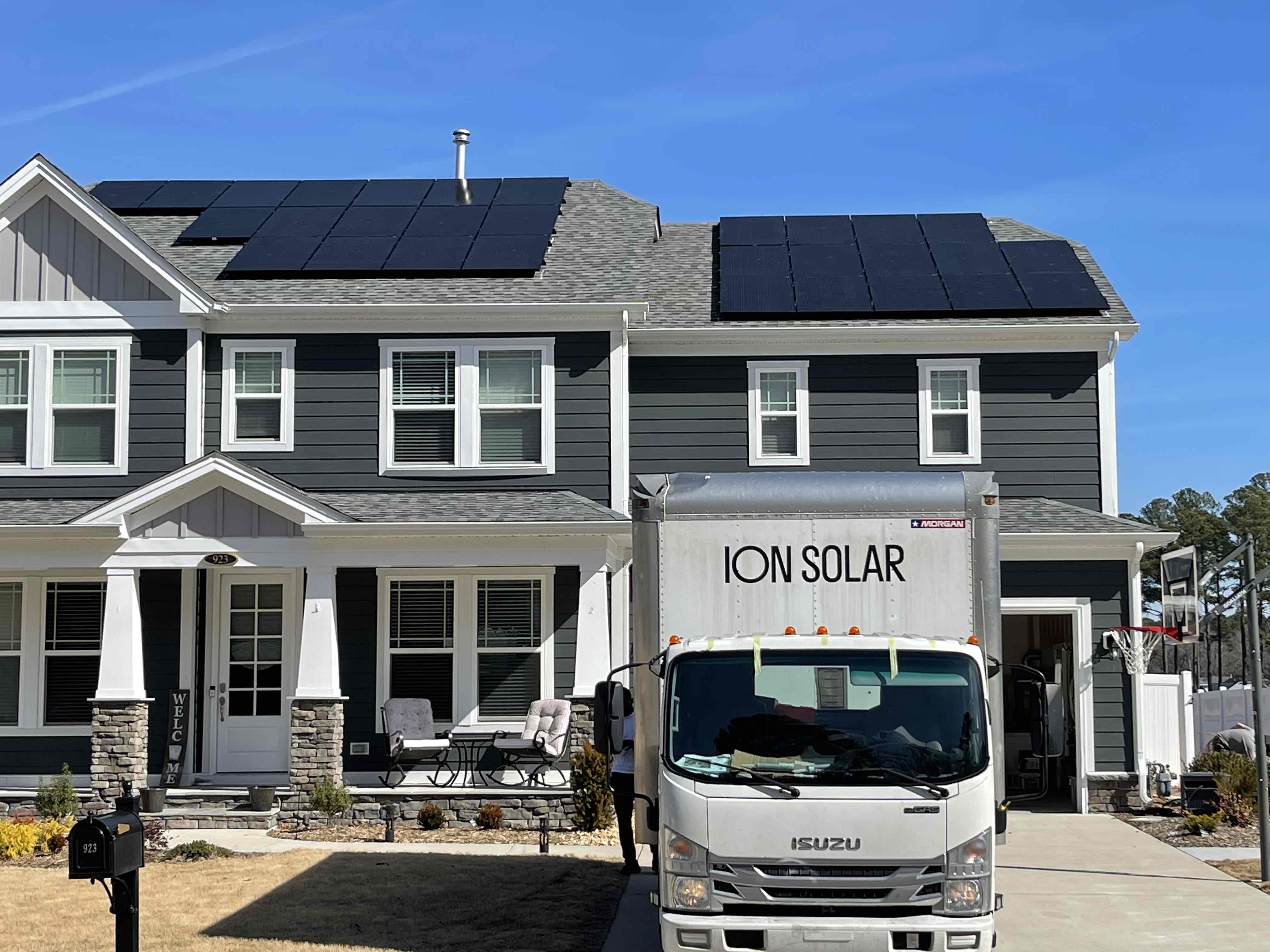
Why over 1,500+ North Carolina homeowners have chosen ION Developer, LLC as their solar provider
Learn what makes us different & why 1,500+ North Carolina homeowners have chosen ION Developer, LLC.
Worry-free,
done-for-you service
ION Developer, LLC handles everything for you – from financing and design to permits and installation – all you have to do is provide a power bill & sign the papers.
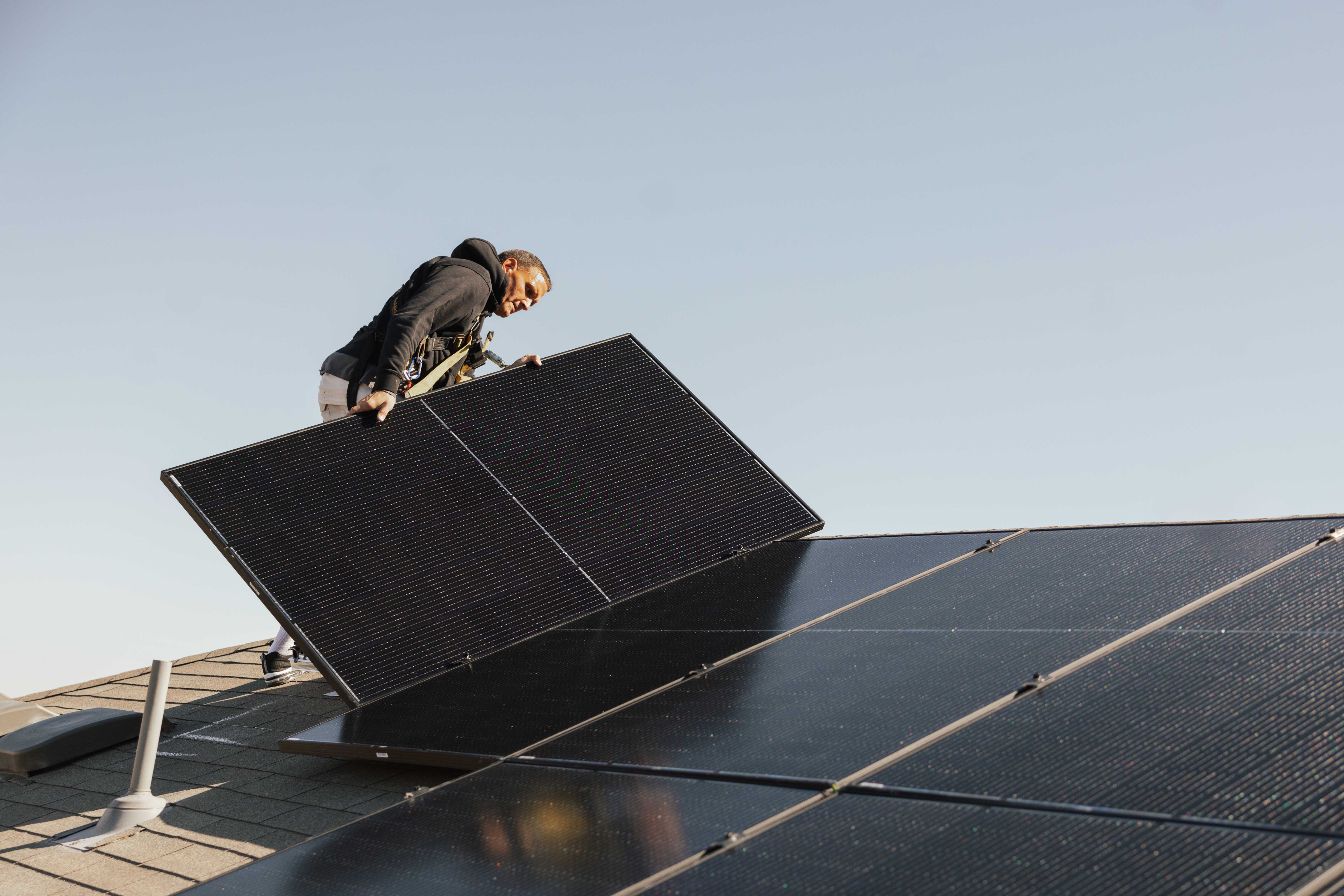
Thoughtful,
modern design that’s customized
to your home
By using black-on-black panels and organizing them in a clean way, you get a system that’s not only powerful & reliable, but looks sleek & tidy, too.
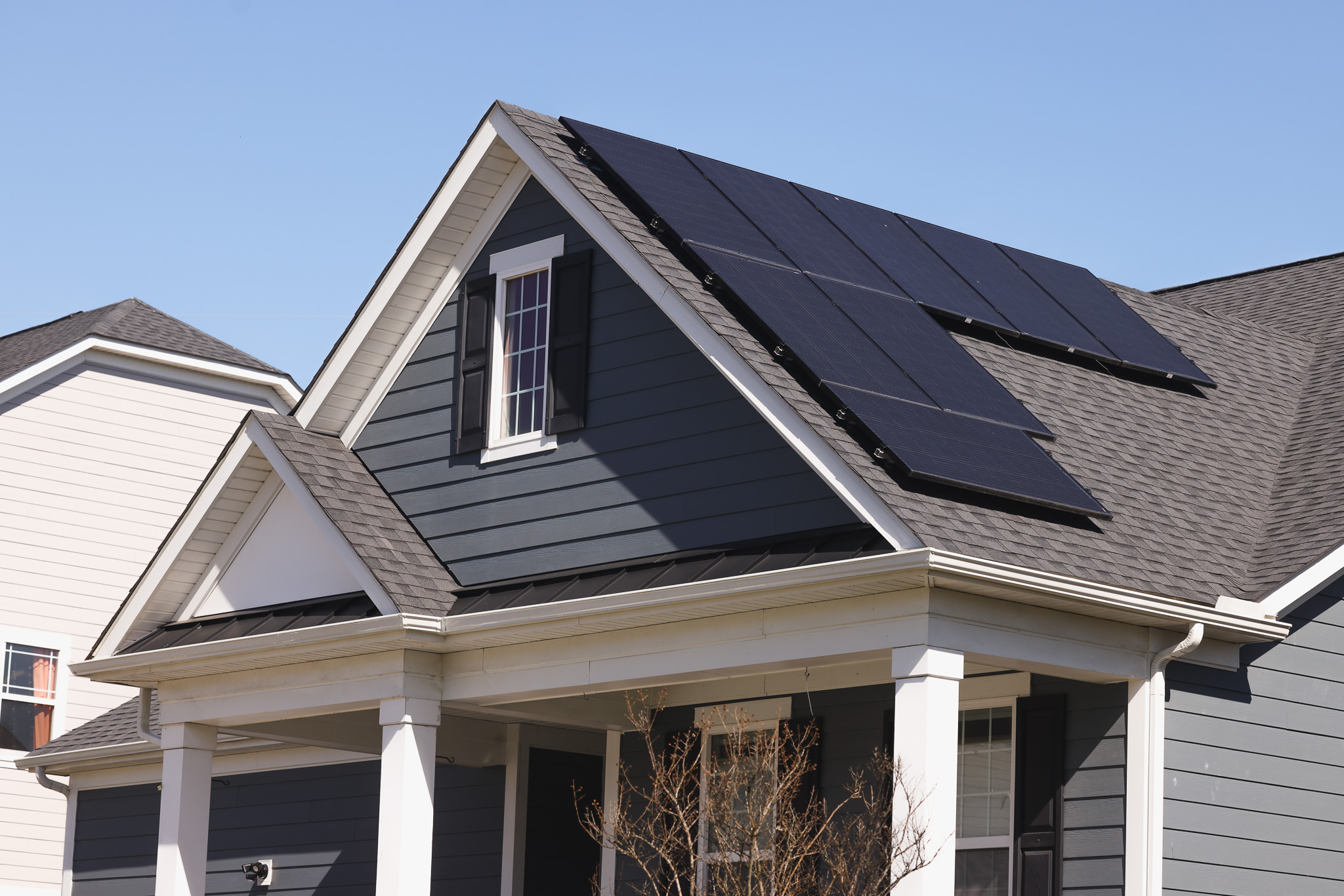
Full-service customer support before, during & after installation
With ION Developer, LLC, you get a dedicated project coordinator, weekly check-ins, as well as fast & friendly support via phone, email, and live chat.


Protected by industry-leading
product warranties & guarantees
Premium Panel
Warranty
Your premium Tier 1 solar panels come with an industry-leading 25-Year Product Workmanship and 30-Year Power Output Warranty.
Inverter
Warranty
MLPE inverters that power your system are protected for 25 years by the manufacturer. The Tesla Power Wall 3 has a 10 year warranty.
10-Year Workmanship Guarantee
All work performed on your home during the installation process (such as rigging, drilling & more) is covered for a full decade.
Satisfaction
Guarantee
Our mission is to provide a premium product and a premium experience. If we don't hit this goal, we have a team ready to help.
Have a question about
switching to solar in North Carolina?
Check out the FAQ’s below for more information or book a free, no-obligation Q&A call with our team.
Solar panels are made of special cells (PV or photovoltaic cells) that absorb sunlight and produce an electrical current.
In order for your home to use that electrical current (known as DC or Direct Current), it must be converted into AC (or Alternating Current), which is done through micro inverters that are attached to each solar panel.
Once the energy has been converted, it runs through your electrical panel, gets distributed within your home, and can be used to power your appliances, lights, and more.
The following solar tax credits and incentives are available in North Carolina. To find out if you’re eligible, we recommend contacting our team for more information and speaking with a tax professional who can help.
The Solar Investment Tax Credit (ITC) is a federal tax credit for those who purchase solar energy systems for residential, commercial or utility scale properties. Through this legislation, all solar systems installed between 2022 and 2023 are eligible for a federal tax credit. If you qualify, you could reduce the cost of your system by up to 30% (Source: Energy.gov).
North Carolina exempts 80% of the appraised value of a solar photovoltaic (PV) system from property tax. Residential PV systems not used to generate income or in connection with a business may be fully exempt from property taxation as non-business personal property (Source: Database of State Incentives for Renewables & Efficiency).
In North Carolina, investor-owned utility companies are required to pay you (usually in the form of bill credits) at full retail rate for excess energy your solar system generates.
Credits can be used to offset charges in future months, however, on June 1st of each year, any unused credit that has accumulated over the previous 12 months is forfeited. This reflects the fact that electricity is more costly in the high-demand summer and winter months than in the cool spring and fall months (Source: North Carolina Utilities Commission).

